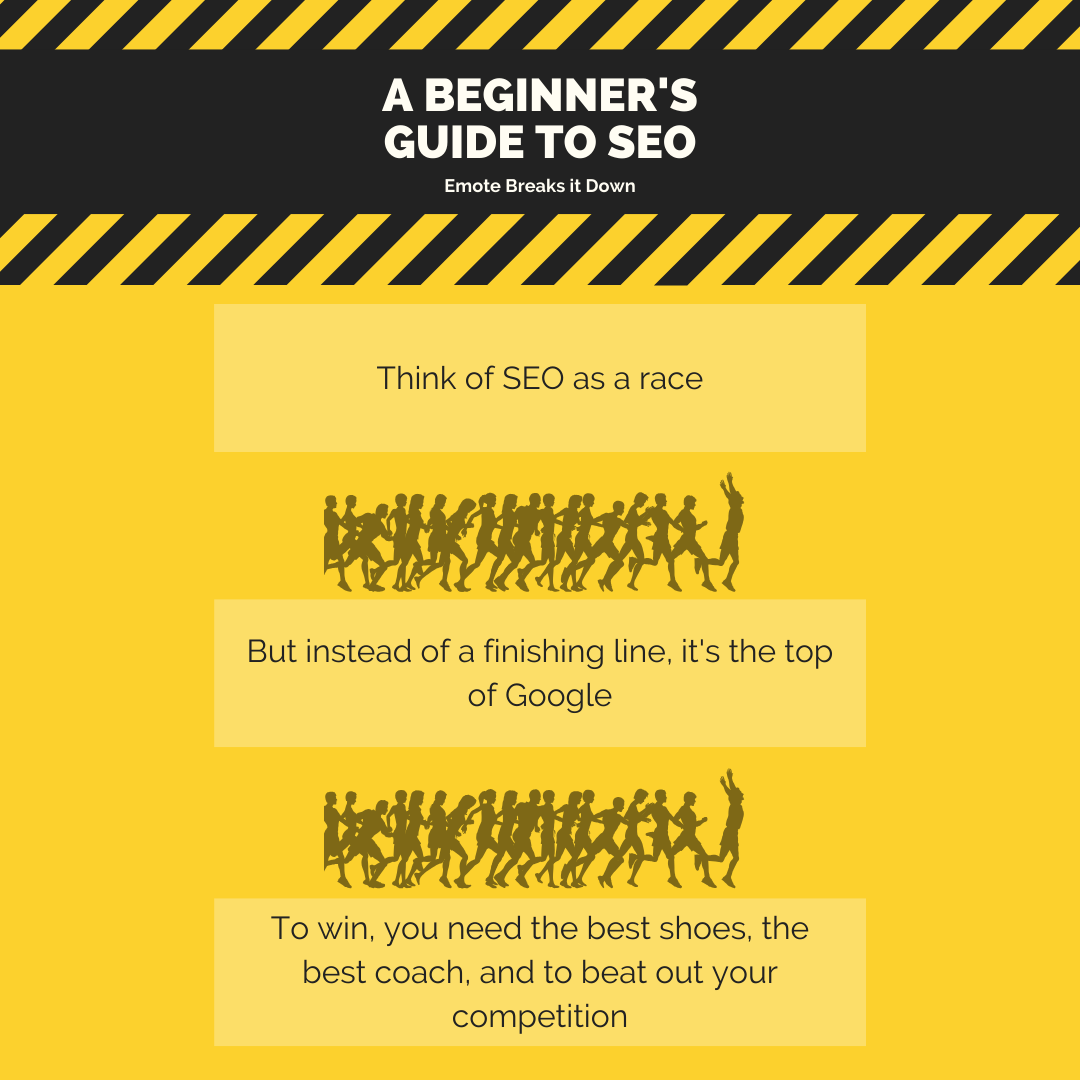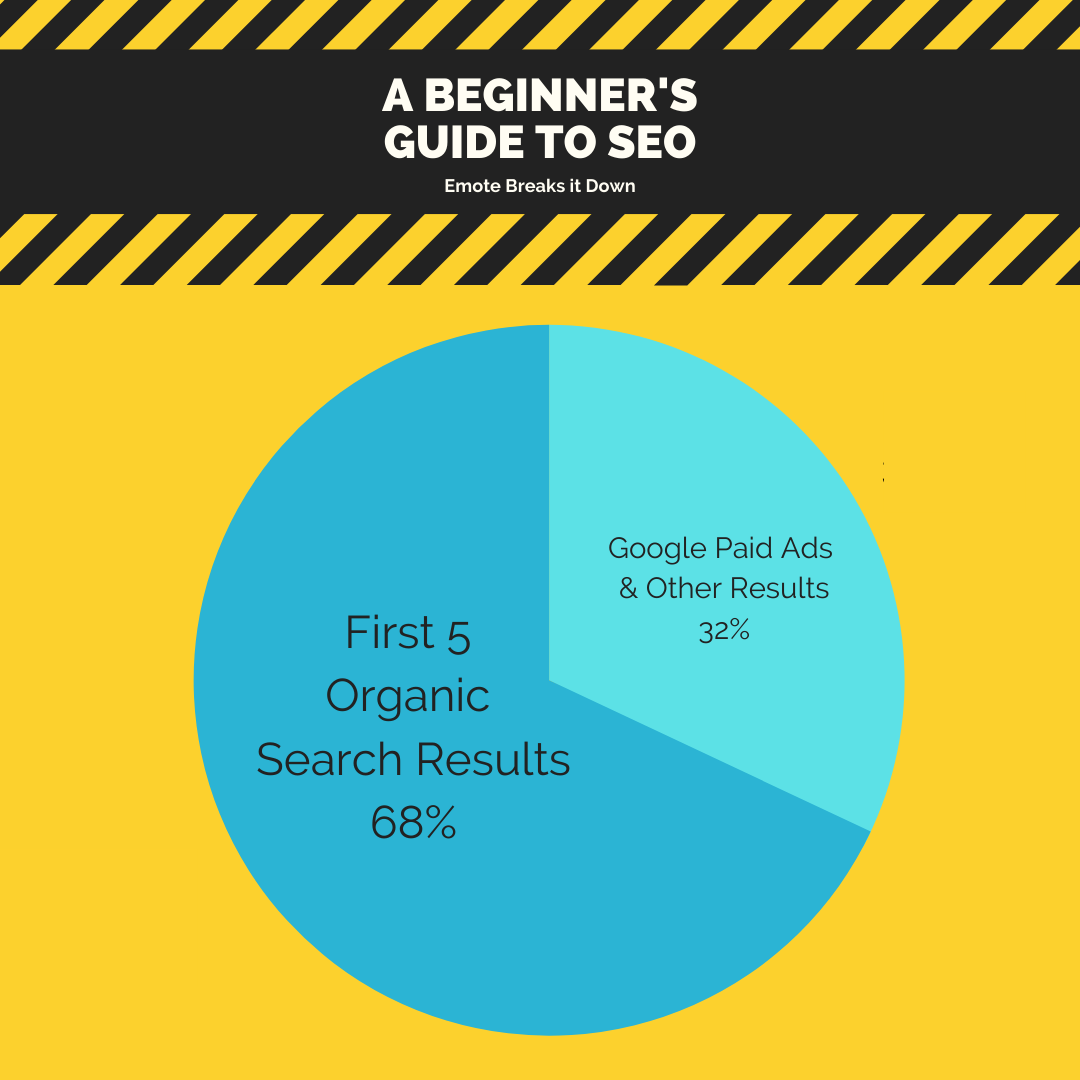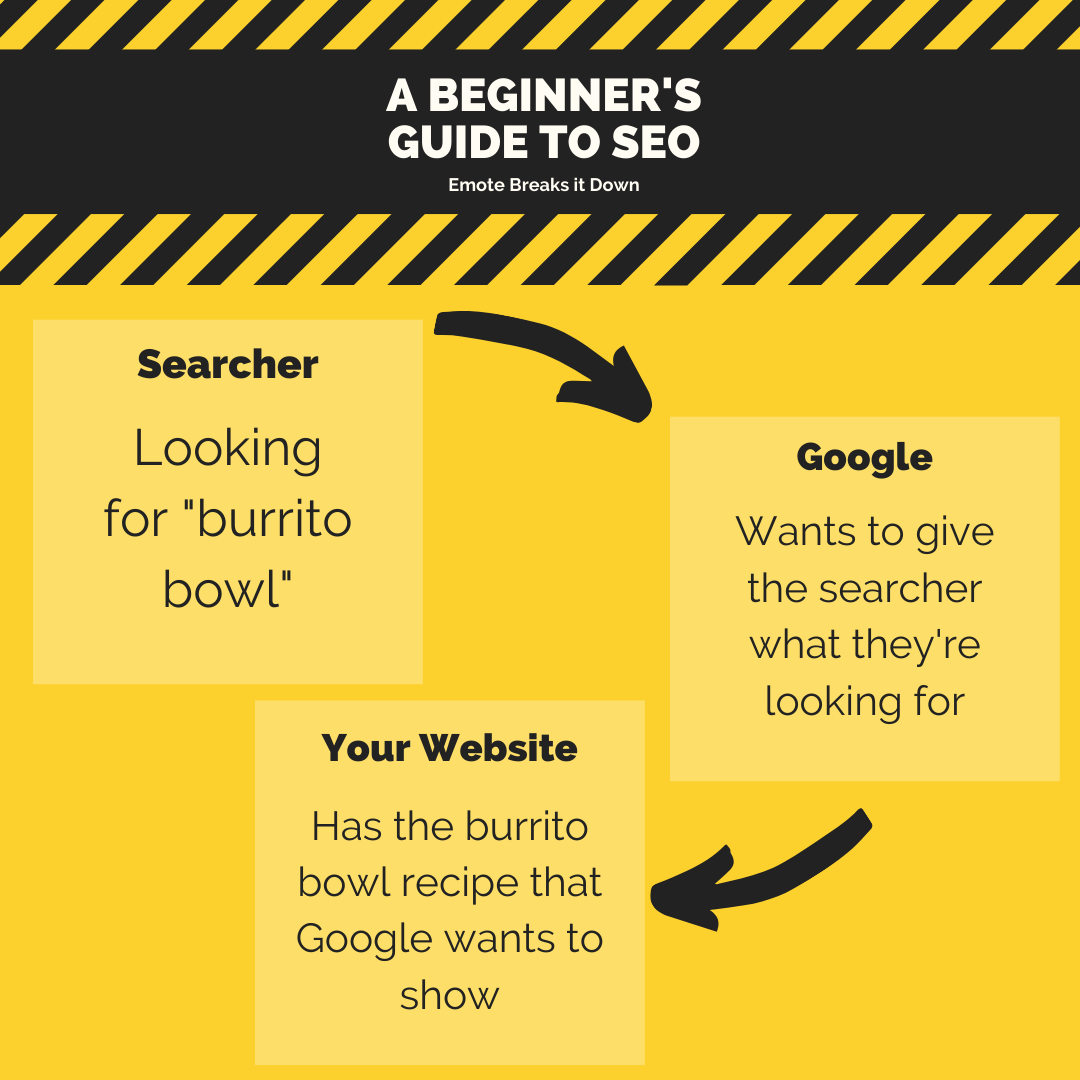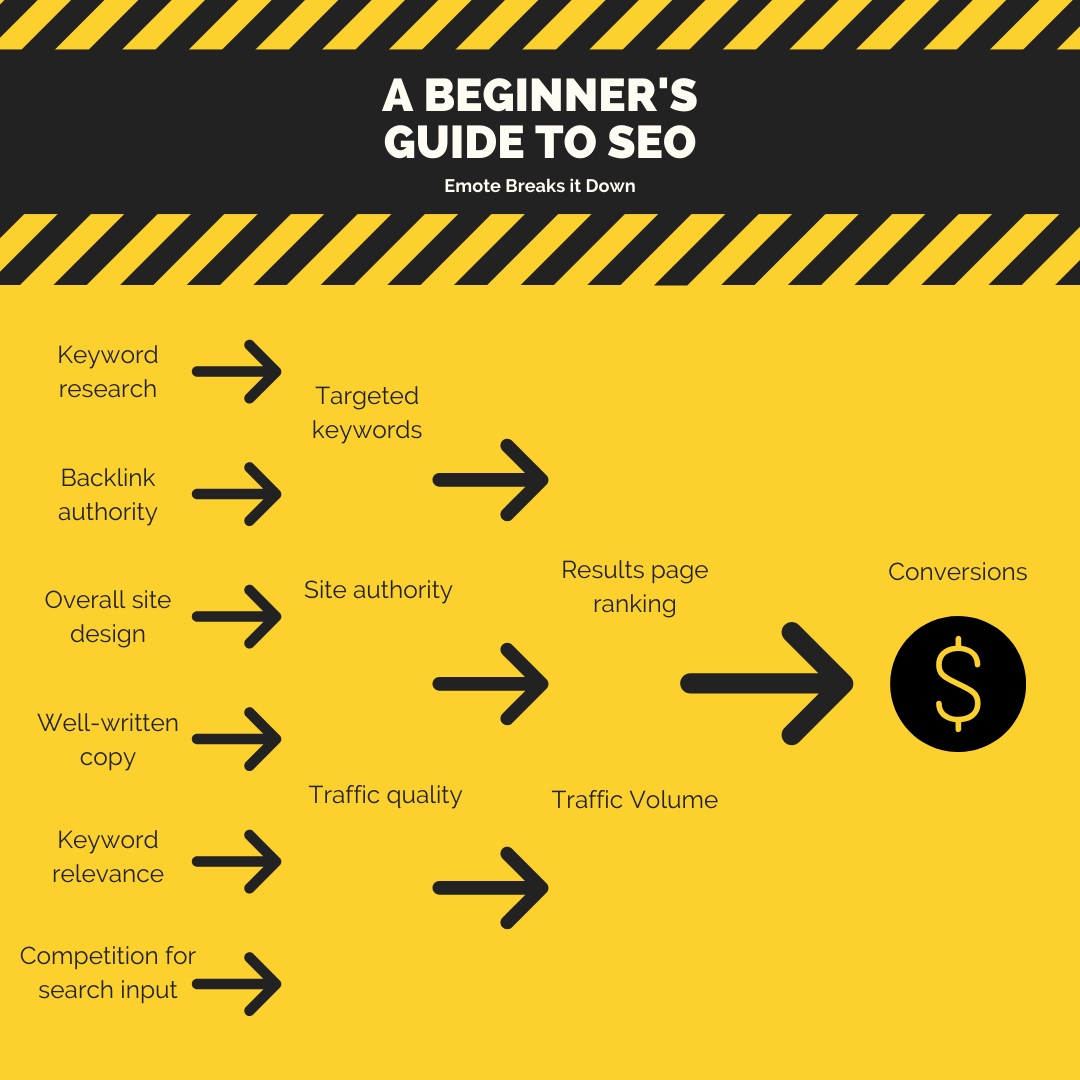A Beginner’s Guide to SEO
For Those Who Prefer a Metaphor to an Acronym
We’re stripping it back to the basics for this beginner’s guide to SEO.
“Caring about your SEO leads to more website traffic, which leads to more conversions, which means more money. “
By the end of this article, you’ll have a firm grasp on the very basics of SEO. Your eyes will no longer glaze over the next time you have a meeting and it’s brought up. Which is really all you need to know. Beyond that is for an SEO to know, and for you to benefit from.
Let’s use a metaphor. Think of SEO as a race.
But instead of racing towards a finishing line, you’re actually racing to get to the top of Google (or any other search engine, but let’s stick with Google).
Wouldn’t you want to make sure you have the right shoes that have been fitted just for you?
Wouldn’t you get the best coach on your side to guide you?
And train for years knowing that it will pay off down the track (pun intended)?
Don’t you think if your competition puts in more work, you’ll need to do more to beat them?
To win the race to the coveted top 5 positions on Google, you need to equip yourself with the best tools. And those tools are SEO.
The Truth is, You Already Understand SEO
That’s assuming you’ve ever searched for something online. Have you? Well, you’re here reading this, so the assumption is yes.
When you’ve searched, have you naturally expected the top few results will be exactly what you’re looking for? Yes.
You intuitively understand that there should be a hierarchy in results. The expectation is that when you search for something, the best results are at the top. Yes? Yes!
Boom. That’s the nature of SEO. You’re an expert.
In fact, it’s those top 5 organic search results (not paid ads) that account for a whopping 68% of all clicks!
It’s almost like if you’re not in the top 5, you’re irrelevant. Think about it, when was the last time you got to page 3 of Google?
And the reason we’re using Google as the example is that almost 71% of all searches start on there. So it’s the biggest beast worth caring about. It’s even a verb.
So What on Earth do We do About it?
The good news is, you can always improve your ranking.
It’s about this special relationship between the searcher, the all-powerful Google, and you. Aka your website.
Let’s use an example:
Say Linda is feeling peckish and wants to make burrito bowls for dinner. She googles “burrito bowl”.
Here, Google wants to do the very best job at understanding exactly what Linda wants, and giving it to her.
Sure, Linda could be after a history of the burrito bowl, or to find a restaurant near her that sells them. But it’s most likely she’s looking for a recipe.
So Google will do what it’s built to do, and give her the best burrito bowl recipes it knows about. And if your website is all about burrito bowl recipes, you want to make darn sure you’re at the top of that list.
But how?
This is The Trickier Part
There are many factors that contribute to Google deciding if you’re a worthy burrito bowl recipe website. And the truth is, nobody knows what they are (for sure, but we can intelligently guess).
“Anything that proves your site is delivering on its promise and people are happy about it, is good for SEO.”
Google actually keeps their exact reasons a secret. This is a good thing! Because if everyone knew what metrics they needed, anyone could cheat their way to the top. And that’s not what we want.
Google not only tries to match up your request for a burrito bowl with a recipe. It also wants to give you the best experience when you read that recipe. Therefore pages that are well-written, well designed, shared often on social media, linked to by other sites and given good Google reviews are favoured.
Anything that proves your site is delivering on its promise and people are happy about it, is good for SEO.
The other tricky thing with SEO is that it has to be GOOD writing. How do you define that?
Some people think SEO writing is about keyword stuffing. That if someone is looking for a burrito bowl, to get the top result your page should read “Burrito Bowl Recipe Online Easy Quick Simple Recipe Burrito Bowl”.
Although this contains all the words that people might possibly search, it’s not nice to read.
When you think of “SEO writing” just think of good copywriting that is written for your audience and not for Google. Then it should be optimised so that Google can tell it’s a page worth visiting.
We could go into more detail about what optimising actually entails.
All the gory details around on-page and off-page SEO, white-hat and black-hat techniques, title tags, meta titles and meta-descriptions. But instead, we’ll simply say this:
Caring about your SEO leads to more website traffic, which leads to more conversions, which means more money.
You could spend a lot of time and effort learning how to optimise your website and become an expert SEO yourself, or you could get seasoned professionals to do it for you.
By now you should have a good grasp of what SEO means in human terms, and hopefully its staggering importance to your business.



